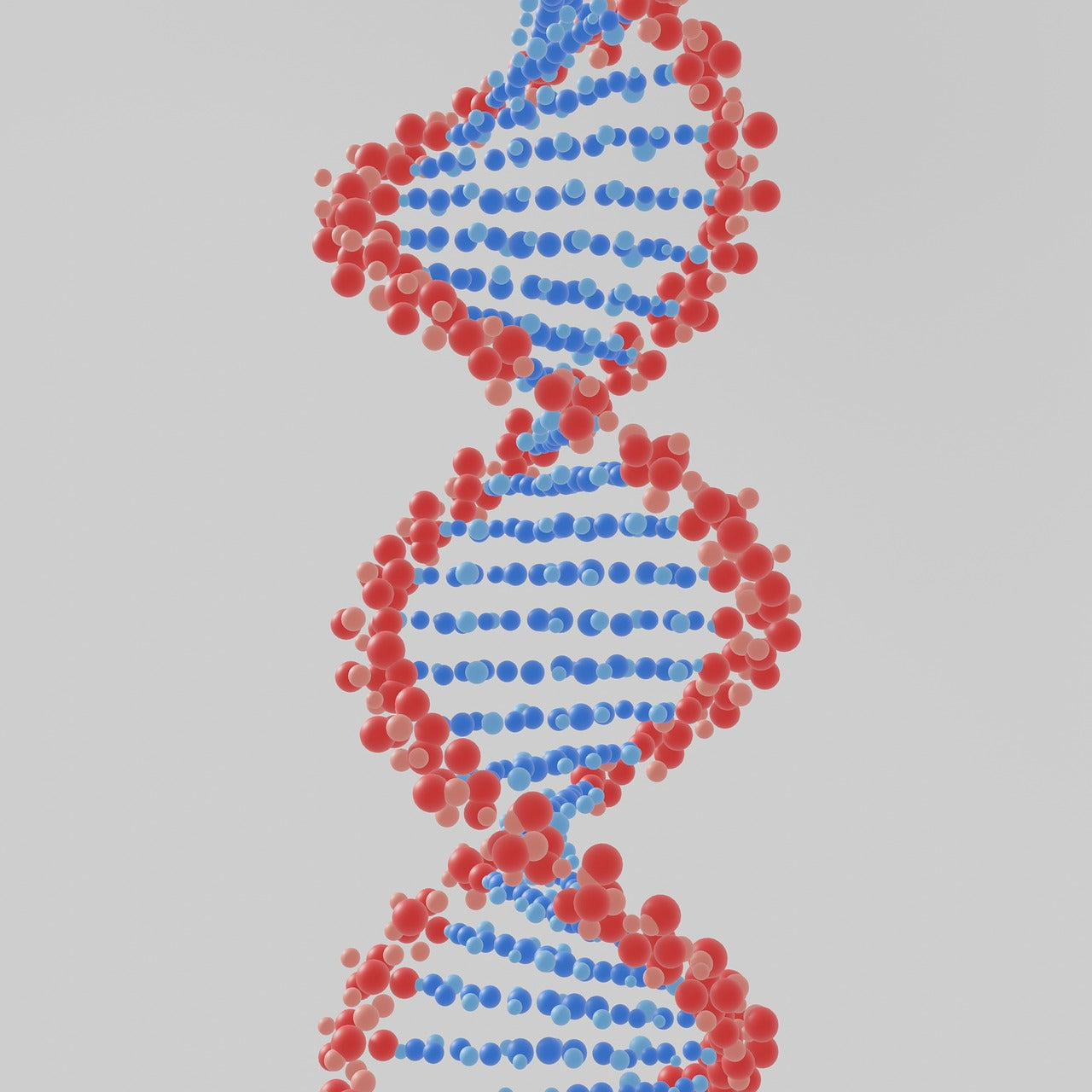

· By Diana Stobo
Epigenetic Nutrition & Holistic Health: Unlocking the Secrets to Longevity and Vitality
Discover how epigenetics and holistic health practices can help reprogram your genes for optimal health.
Introduction: The Power of Epigenetics in Health
In recent years, research into epigenetics has transformed our understanding of how our genes interact with our environment. While our genetic code provides the blueprint, it’s our lifestyle and environment that determine how that blueprint is expressed. This means that through informed choices, you can potentially reprogram your genes to promote health and vitality, while reducing the risk of chronic diseases.
What This Means for You
The concept of epigenetics empowers you to take control of your health by focusing on the factors that influence gene expression. Rather than feeling limited by your genetic predispositions, epigenetics offers a pathway to actively shape your well-being through diet, lifestyle, and mental health practices.
The Basics: What is Epigenetics?

Epigenetics refers to changes in gene expression that do not involve alterations to the underlying DNA sequence. Essentially, it’s how environmental factors can "turn on" or "turn off" certain genes. This field explores how nutrition, lifestyle, stress, and environmental exposures affect our genetic programming.
Why Epigenetics Matters
The study of epigenetics highlights the impact of our daily choices on long-term health outcomes. Factors like smoking, poor diet, chronic stress, and exposure to environmental toxins can all lead to epigenetic changes that increase the risk of chronic diseases like obesity, diabetes, and cardiovascular conditions. On the flip side, positive interventions like balanced nutrition, regular exercise, and mental health practices can help maintain healthy gene expression and reduce these risks.
Key Epigenetic Mechanisms
Epigenetics primarily involves three main mechanisms that regulate gene expression:
-
DNA Methylation
DNA methylation is a process where methyl groups are added to the DNA molecule. This usually occurs at cytosine bases next to guanine (referred to as CpG sites) and can silence or activate gene expression depending on the context. Methylation has been linked to conditions like obesity, type 2 diabetes, and various cancers. -
Histone Modifications
Histones are proteins that help package DNA within cells. Modifications like acetylation, methylation, and phosphorylation of histones can influence how tightly DNA is wrapped, thereby controlling access to genes for transcription. Histone modifications are associated with aging, metabolic syndromes, and cognitive decline. -
MicroRNA (miRNA) Regulation
miRNAs are small, non-coding RNA molecules that bind to messenger RNA (mRNA) and inhibit translation or promote mRNA degradation. This regulatory mechanism is crucial in controlling genes linked to inflammation, metabolism, and immune responses.
Understanding these mechanisms helps clarify how environmental factors can have a direct impact on the expression of specific genes, paving the way for potential interventions and therapies.
The Role of Nutrition in Gene Expression
Nutrition is a key player in influencing epigenetic changes. Certain nutrients and bioactive compounds can impact DNA methylation, histone modifications, and miRNA expression, thereby affecting health outcomes.
Epigenetic Superfoods

Several foods have been studied for their epigenetic effects:
- Leafy Greens: Rich in folate, which is essential for DNA methylation.
- Berries: High in anthocyanins and flavonoids that can protect DNA from oxidative stress.
- Nuts: A source of omega-3 fatty acids, which support cognitive function and brain health.
- Turmeric: Contains curcumin, which has anti-inflammatory properties and can influence gene expression related to inflammation.
The Role of Omega-3s
Omega-3 fatty acids found in algae oil, flaxseeds, and walnuts are crucial for brain health and cognitive function. Studies have shown that omega-3s can regulate the expression of genes involved in inflammation and neuroprotection. Fatty fish have omega 3s but are also sometimes tainted with mercury and toxins.
Holistic Health Approaches to Epigenetic Wellness
Holistic health is an approach that recognizes the interconnectedness of the mind, body, and environment. This perspective aligns well with epigenetic principles, as our mental state, physical activity, and environmental exposures all contribute to gene expression.

Meditation and Mindfulness
Meditation and mindfulness have been shown to reduce stress, which in turn affects cortisol levels and the expression of stress-related genes. Studies have indicated that regular meditation can promote positive epigenetic changes related to inflammation and immune function.
Physical Activity and Gene Expression
Exercise is a powerful epigenetic modulator. It has been shown to promote favorable gene expression in metabolic pathways, reduce inflammation, and increase the production of brain-derived neurotrophic factor (BDNF), which is crucial for cognitive health.
Linus Pauling’s Legacy: Orthomolecular Medicine
Two-time Nobel Prize winner Linus Pauling laid the foundation for orthomolecular medicine, which focuses on optimizing health through high doses of vitamins, minerals, and other natural substances.
Vitamin C and Immunity
Pauling was a major advocate for the use of Vitamin C to boost immune function and prevent illnesses like the common cold. His research opened the door to further studies exploring Vitamin C’s potential in reducing inflammation, protecting against oxidative stress, and supporting cardiovascular health.
Niacin and Mental Health
Along with Dr. Abram Hoffer, Pauling explored the use of niacin (Vitamin B3) for improving mental health, especially in cases of schizophrenia and mood disorders. This work contributed to the development of orthomolecular psychiatry, which aims to treat mental health issues using nutrient-based interventions.
Lifestyle Factors That Influence Gene Expression

In addition to nutrition, other lifestyle factors play a crucial role in influencing gene expression:
-
Diet & Nutrition
Foods like blueberries, salmon, and turmeric impact gene expression through mechanisms like DNA methylation and histone modifications. A balanced diet is essential for maintaining epigenetic stability. -
Physical Activity
Exercise supports the maintenance of DNA integrity, reduces inflammation, and positively affects genes related to metabolism and cognitive health. Regular physical activity is a cornerstone of healthy gene expression. -
Mindfulness & Stress Reduction
Stress is a significant modulator of gene expression. Chronic stress can lead to negative epigenetic changes, increasing the risk of conditions like cardiovascular disease and depression. Practices like meditation, yoga, and deep breathing can mitigate these effects by promoting positive gene regulation.
How to Apply Epigenetic Nutrition in Your Life
Applying the principles of epigenetic nutrition and holistic health involves making informed choices in diet, lifestyle, and supplementation:
Balanced Diet
Focus on consuming a diet rich in fruits, vegetables, whole grains, lean proteins, and healthy fats. Prioritize nutrient-dense foods like leafy greens, berries, nuts, and fatty fish to support favorable gene expression.
Exercise
Incorporate regular physical activity into your routine. Aim for a mix of aerobic exercises, strength training, and flexibility workouts to optimize metabolic health and DNA integrity.
Mindful Living
Stress management is key to maintaining epigenetic balance. Make time for mindfulness practices like meditation, yoga, or spending time in nature to reduce stress and support mental well-being.
Supplement Wisely
Consider evidence-based supplements like Vitamin C, niacin, and omega-3 fatty acids, especially if dietary intake is insufficient. Consult with a healthcare professional to determine the best supplementation plan for your needs.
Conclusion: Rewriting Your Genetic Story
Epigenetics offers a new understanding of health and longevity. By embracing holistic practices and nutrient-based interventions, you can effectively influence gene expression, protect against chronic diseases, and promote long-term vitality.
In health and love,
Diana Stobo – Truth Bar Founder

Footnotes
- Lillycrop, K. A., & Burdge, G. C. (2011). Epigenetic changes in early life and future risk of obesity. International Journal of Obesity, 35(1), 72-83. https://doi.org/10.1038/ijo.2010.122
- Moosavi, A., & Motevalizadeh Ardekani, A. (2016). Role of Epigenetics in Biology and Human Diseases. Iranian Biomedical Journal, 20(5), 246-258. https://doi.org/10.22034/ibj.20.5.246
- Portela, A., & Esteller, M. (2010). Epigenetic modifications and human disease. Nature Biotechnology, 28(10), 1057-1068. https://doi.org/10.1038/nbt.1685
- Choi, S. W., & Friso, S. (2010). Epigenetics: A New Bridge between Nutrition and Health. Advances in Nutrition, 1(1), 8-16. https://doi.org/10.3945/an.110.1004
- Pauling, L. (1970). Vitamin C and the Common Cold. W.H. Freeman & Co Ltd.
- Hoffer, A., & Pauling, L. (1993). Orthomolecular Treatment for Schizophrenia: Megavitamin Supplements and Nutritional Psychiatry. Keats Publishing.
- Zheng, J., & Liu, C. (2016). Diet-Induced Epigenetic Changes and Their Implications for Human Health. Nutrition Reviews, 74(6), 353-369. https://doi.org/10.1093/nutrit/nuw019
